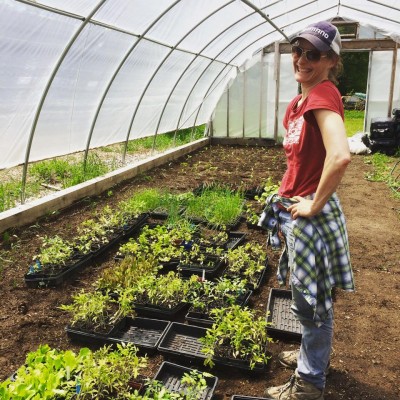By Julie Bourassa, CFICE Volunteer
Food sustainability and climate change are increasingly urgent and intertwined issues. From the way we produce and package our food, to how much we consume – our relationship with food is not sustainable.
While these are global issues, a powerful solution can be found in our very own local farmer’s markets.
“In many ways, small scale farming and local food systems are the best structures for supporting sustainable agriculture,” explains Melissa Johnston, a Master’s student in Trent University’s Sustainability Studies program.
To keep afloat, many small-scale growers must use alternative business models and practices, which are often more sustainable. Planting diverse crops, avoiding the use of chemicals, and not using large machinery are all innovative – and environmentally friendly – ways in which small scale farmers are facing environmental challenges.
“And farmer’s markets give an outlet for these small scale farmers who may otherwise not be able to compete on a larger, supermarket scale,” says Johnston. “And local markets reduce food transport. So by choosing local markets, you’re contributing to a healthier environment.”
Johnston was first struck by the potential of local food initiatives after visiting Abbey Gardens, a community project that encourages visitors to think more sustainably about food, land, and the local economy. Stopping by Abbey Gardens after an academic retreat, she and her colleagues were given a tour by Operations Director, Heather Reid.
“I was blown away by the place and was asking a million questions,” says Johnston. “Heather saw that I was quite interested and we met over the next few months to discuss my potential involvement in a local research project.”
With support from CFICE’s Community Environmental Sustainability Hub, Johnston was able to officially partner with Abbey Gardens.
As part of the partnership, Johnston gained hands-on experience in the world of small scale agriculture. From working in the fields, to managing Abbey Gardens’ tables at farmer’s markets, Johnston also engaged with some of the community’s farmers.
“Through my conversations with people, I got a great snapshot of the Haliburton County food system and where local growers and farmer’s markets fit within it,” said Johnston.

While partnering with Abbey Gardens, Melissa Johnston experienced sustainable farming first hand. Photo credit: Abbey Gardens.
In return for access to the community, Johnston provided weekly reflections. These reports offered new analysis and critiques of Haliburton’s food system, which were of benefit to Reid and other community food advocates.
Johnston specifically remembers Reid telling her that, being lost in the day to day shuffle, it was nice to take a step back with her and see the bigger picture.
While the season is wrapping up, and her work with Abbey Gardens has ended, the benefits of the partnership continue.
“My relationship with Heather continues,” says Johnston. “She has offered to support and advise me through the process of writing my thesis.”
As she moves into the writing stage of her thesis, Johnston hopes her research will give back to local farmer’s markets and strengthen the agricultural community.
“Going into my Master’s, I knew I wanted to help real people with real problems, and not just write a thesis that would sit on a shelf and gather dust,” says Johnston. “I want to find ways in which the community can support local farmers, and how local farmers can better serve the community.”